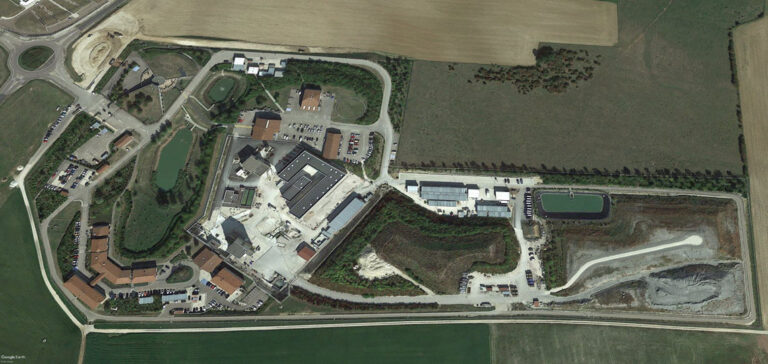In a landmark decision for environmental protection, the French Constitutional Council on Friday ruled on the rights of future generations invoked by opponents of the Cigéo project to bury the most radioactive waste from nuclear power plants in Bure (Meuse).
The Cigéo project for geological disposal 500 meters underground has already reached a number of milestones, despite having been contested for over twenty years. However, it has been validated by the government, which declared it to be in the public interest in 2022.
Appeals against the project
The latest appeal: the declaration of public utility has been challenged before the Conseil d’État by local residents, 14 local and 7 national organizations, including Attac, France Nature Environnement, Greenpeace and “Sortir du nucléaire”. This appeal provided the opportunity to submit a Question prioritaire de Constitutionnalité (QPC) to the French Constitutional Council, in order to verify whether the planned waste treatment method in the Bure clay subsoil complies with constitutional principles, namely those set out in the preamble to the 2005 Charter of the Environment.
What’s at stake?
The issue is crucial: “This may have consequences for the authorization of new projects, which will be assessed on the basis of their immediate and future consequences”, argues environmental lawyer Vincent Brenot, a partner at August Debouzy, who usually defends industrialists, but is not involved in this case. “There’s a subtle balance to be found on the part of the Constitutional Council”, he says, “because we’re both in a period when we’re very attentive to the environment and in the midst of a quest to regain our industrial sovereignty”.
Shelf life of waste
When it comes to landfilling waste, the principle imposed by French legislation is to ensure the reversibility of the storage method, for at least several decades, during which time it must be possible to change the method or recover the waste. Yet, argue the petitioners, the considerable period of time – up to hundreds of thousands of years – during which the most toxic waste must be stored before radiation returns to safe levels far exceeds this duration, and mortgages the rights of future generations.
The challenges of solidarity and fraternity
As future generations do not exist, our reasoning is based on our obligations of solidarity and fraternity towards them. The Constitutional Council will have to decide to what extent.
Next steps in the project
France has three surface disposal centers, two in Aube and one in La Manche, which can store 90% of the radioactive waste produced in the country. The most radioactive nuclear waste – high-intensity, long-lived waste – could be stored by 2035-2040 in the clay subsoil at Bure, on the borders of the Meuse and Haute-Marne departments. The site could accommodate at least 83,000 m3, like Finland’s Onkalo repository, designed to house the spent fuel produced by the country’s five reactors over their entire lifetime. Like every nuclear site, Cigéo will undergo a double technical examination by the French nuclear safety authority (ASN) and IRSN, the institute that monitors nuclear risk, which will take around three years.
For the time being, Andra’s Meuse site only houses a scientific laboratory, and no radioactive waste is stored there. The project gave rise to numerous protests. On September 2, a demonstration was again held under heavy surveillance, bringing together several hundred people, including local residents and anti-nuclear activists of various nationalities (French, Germans, Swiss, Brazilians, Colombians), to denounce the government’s “forced passage”.






















